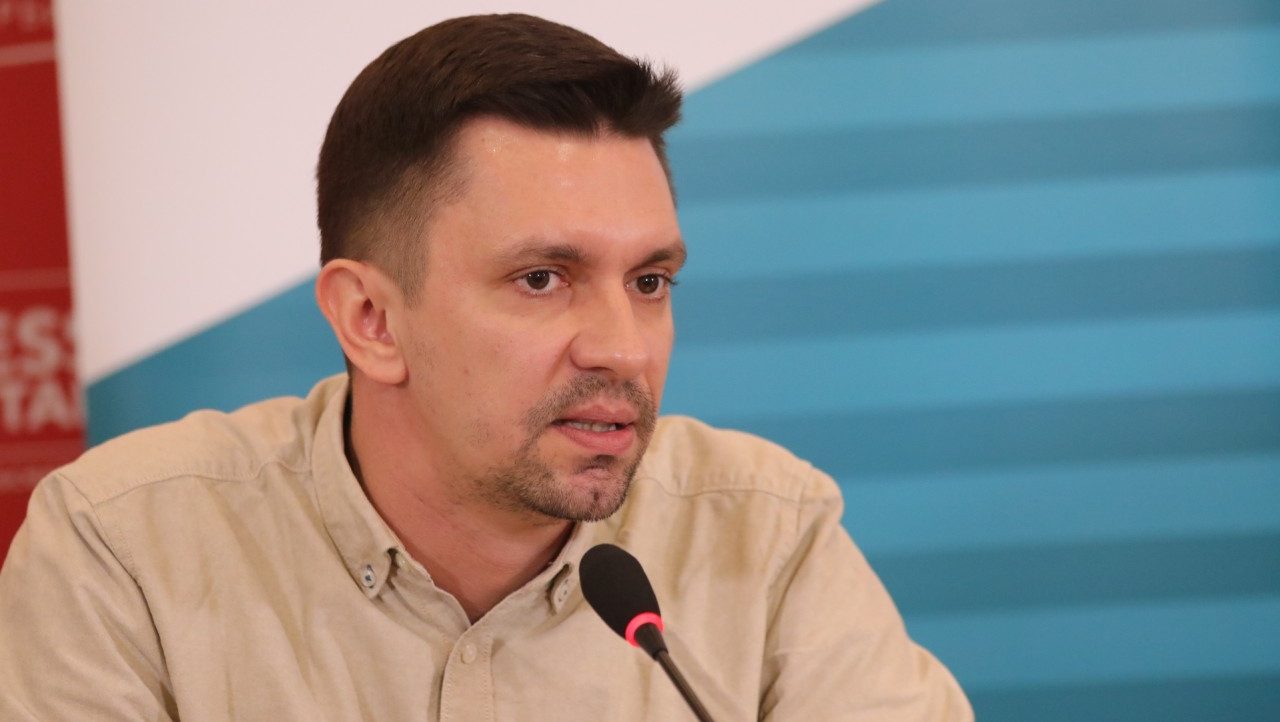Named why the number of queues in public medical institutions is increasing

According to her, the public sector also « loses very much doctors » to private bodies for this reason.
« There are no rows to private institutions, because every time the patient has to pay. And you probably know how many patients can afford to pay. Most of our patients, the Lithuanian population, cannot pay.
« Because of these unequal conditions between private and public institutions, these very long rows have been formed today, as there is a huge flow of doctors and other health professionals to private institutions, » she said.
This is how she spoke after a meeting of representatives of private and public medical institutions with Prime Minister Gintautas Paluck on Monday.
As BNS wrote, the Ministry of Health proposes prohibiting treatment facilities from 2026. As part of this reform, Minister Marija Jakubauskienė promises to review the services for services.
According to the Ministry of Health, the current provision of the law, which establishes the possibility of choosing more expensive services, materials or procedures, theoretically had to provide patients with more alternatives, but in practice has become an illegal patient taxation tool.
There are no rows in private bodies, as the patient has to pay every time. And you know how many patients can afford to pay.
Patients are currently taking place in private institutions.
According to the Government, patients already pay at least $ 40 million a year for health services already paid to the state. euros.
Further discussions will move to the Seimas
The Vice -Minister of Health said that all stakeholders seek the same – fair cooperation, but this is not currently secured.
« The private sector wants an honest partnership, the same government and the ministry wants the same way to work under equal conditions. The amendments to the law are directed at the fact that, unfortunately, those fair conditions are now not everywhere and are not always secured, » said J. Čelutkienė.
Jelena Čelutkienė. Photo by R. Riabov / BNS
« We see often a situation where patients applying for referrals to private institutions with which the sickness funds are concluded, only with additional payments or even full payments, » she said.
According to the Prime Minister’s adviser Evaldas Navickas, this amendment of the law is needed to prevent the « (health – BNS) system from imposing a complete collapse » and the debate on him will continue to move to the Seimas.
Evaldas Navickas. Photo by R. Riabov / BNS
« We made the decision that we will continue to discuss, we will have a long -term dialogue in the mixed group, that is, in the context of private and public institutions, » Navick said after the meeting.
« However, we want to move on the bonuses further, that is, this project would be submitted to the Seimas of the Republic of Lithuania and further discussions, and will no doubt move to the Seimas, » he said.
According to the Prime Minister’s adviser, there was an open dialogue between the public and private sector, and from the arguments before he distinguished the possible violations of the Constitution.
« The only argument (against BNS) is the only argument, that is, the Constitution and perhaps its violation of certain provisions, but we believe that this is not a violation of constitutional law, because first and foremost, a person is entitled to free medicine and continues to follow all the outcome we have discussed today, » Navick said.
“The private sector is completely displaced”
Laimutis Paškevičius, president of the Lithuanian Association of Private Health Care Institutions, told BNS that proposals made by the Ministry of Health were intended to « push private institutions out of Lithuania’s national health system ».
According to him, the amendments provide that from next year, contracts for payment of additional services with the sickness funds in the first phase would be concluded with state municipal health care institutions, in the second – district and regional institutions, and if they are unable to meet their needs.
« The private sector is completely displaced from the inpatient sector, » the president of the association said.
L. Pashkevich also said that the elimination of the opportunity to pay for the services would increase the likelihood of corruption as patients would pay for additional services in envelopes.
He believes that some medical practitioners can emigrate due to such a decision. The president of the Association says he heard speeches that after the reform, the decrease in the funding of the sickness funds for private bodies, their doctors will not work to work in public institutions.
« (They – BNS) will simply raise their wings to other countries of the European Union, where two or even three times higher salaries are paid, there are no nonsense there that it would constantly be reorganized by law and an unpredictable situation, » added L. Paškevičius.
L. Pashkevich hoped that the prime minister had heard the medical staff and the criticism of the Seimas would be taken into account.
Tomas Jovaiša, Director General of Santara Clinics, told BNS that it was one of the first discussions on the bonuses, which expressed various positions. He said he was of the opinion that « operating conditions for both the public and the private sector must be exactly the same. »
« The services reimbursed by the sickness funds must be provided for the same price to all residents and should not be the financial situation based on the priority conditions, » said T. Jovaiša.
A survey conducted by Vilmorus in April commissioned by BNS showed that six out of ten Lithuanian residents support the proposal to ban additional premiums for state -funded health care services. Almost 28 percent. Respondents said the bonuses should be left and the rest of the interviewees had no opinion on the matter.
A survey conducted by Vilmorus in April commissioned by BNS showed that six out of ten Lithuanian residents support the proposal to ban additional premiums for state -funded health care services. Almost 28 percent. Respondents said the bonuses should be left and the rest of the interviewees had no opinion on the matter.









